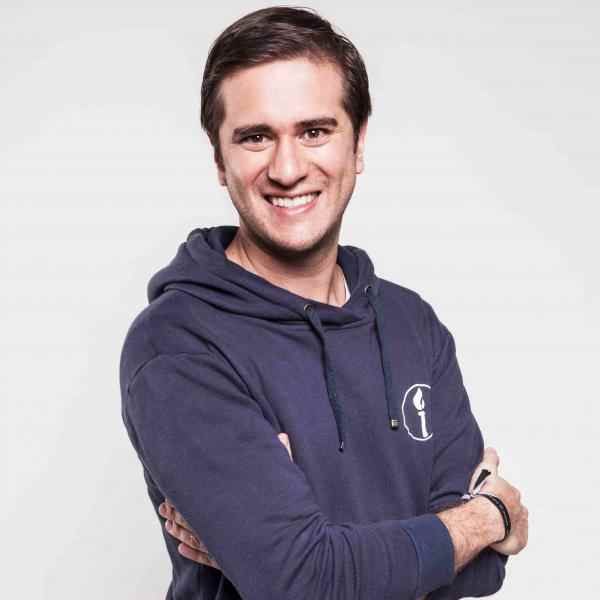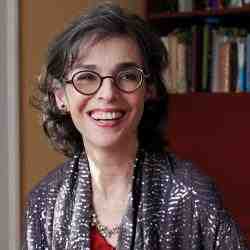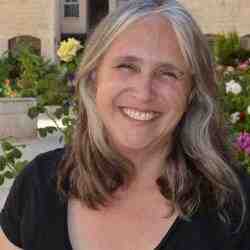Introduction
Daniel Buritica has created a social integration model which develops entrepreneurial skills in young people. By utilizing a national law that makes 80 hours of social service compulsory for students, he involves them in a step by step process of recreational but transformative social experiences so that the young volunteers become agents of social change.
The New Idea
Colombia is a country with a high number of at-risk youth. They remain unmotivated, apathetic and highly exposed to risk factors such as crime, drugs, apathy, lack of schooling and poverty. In addition, there is the problem of paramilitary activity, which tempts many young people to take up arms in pursuit of a "better future". Daniel is creating a path of participation to ensure a genuine social impact to reduce these risks through his social integration model. This is done through four components. Real Hero, the ecosystem’s gateway, is a mobile app that gives young people a range of experiences of online and offline social services through network based games. Next is Bakongo - a summer camp experience which prepares the young people to be instigators of positive change. The third component is Pick Up, a community of young Colombians that strengthens network links and provides deeper and even more transformative experiences for the youth. The fourth and final segment is Sumame.co which is a fund that gives grants to young entrepreneurs for their projects.
Daniel provides a more engaging experience compared to other voluntary organizations. He does this by providing a step by step process to learn entrepreneurial skills. Young people in this process come away with material, emotional and empathic rewards as well as real social impact. It also provides a connection with companies that are not sure where to find volunteers. Real Hero provides virtual assignments and offline missions which allow young people to have direct contact with social organizations from as young as 15 years old. This creates an interest in contributing and measuring social impact.
Daniel managed to replicate his model in two resourceful ways. First, after students have completed the hours for social work required by law, (Act 515 of 1994), they share their experience in schools. Second, partner networks, such Daniel’s organization called the Colombian Youth Network (RECOJO) which is present across the country, and other youth organizations, replicate the model in Colombia, Latin America, and globally.
** Merged Data **
Empoderar a los jóvenes para asumir y comprometerse con emprendimientos sociales. Existen muchos alicientes, apoyos y orientaciones para emprendimientos de negocios. Pero cuando un joven decide convertirse en un emprendedor social, generalmente ni siquiera en su entorno familiar le creen o lo apoyan. El modelo creado por Daniel consta de 3 etapas: (1) sensibilizar para actuar; (2) acceder a experiencias formativas y a la vez divertidas que constituyan la inspiración para empezar a actuar; (3) formar una red de Emprendedores Sociales Jóvenes innovadores, que facilita la unión y la promoción de sus emprendimientos. En solo 4 años de trabajo esta Red creada por Daniel, Recojo, cuenta ya con 27 proyectos asociados a la misma. Los programas de Recojo se enfocan tanto en niños de colegio como en jóvenes universitarios que comparten con niños de bajos recursos y ofrecen un modelo de consultoría con metodología que les ayudan a consolidar y proyectar adecuadamente sus ideas.
The Problem
89% of Colombians agree that civil society helps solve the country's problems, but only 31% of young people are actively involved or do some volunteer work with this type of organization. According to Latinobarómetro, 38.5% of youth said they were not active because they didn’t find organizations that motivated them. This lack of participation is reflected in a poor first social experience when performing the hours of mandatory social service. This results in an apathetic youth partaking in“boring” social service, resulting in citizenswho will not have social responsibility.
In addition, the mandatory social service programs in most cases do not meet the goal of making young people aware of issues in their communities. The projects are often of low quality, and serve purely to meet the legal requirement. Neither do they guarantee an experience that actually benefits the recipient community. Many companies and NGOs would like to have volunteers but there is no volunteer program in Colombia that can connect their needs with young people. Conversely, for young volunteers, knowing where to go to complete volunteer hours that comply with the law is often unclear.
In Colombia, young people vote less than adults. The difference between the number of votes cast in elections by adults and the youth is 15%. This indicates the civic indifference and apathy present in society. Yet now more than ever is an important moment for civic participation in Colombia. Currently, the country is in a process of negotiation and execution of national reconciliation and post conflict agreement, where various problems are discussed ranging from social reintegration of militants to the construction of a road tosustainable peace. Manywant to contribute but do not know how. Finally, it is important to note that many of the demobilized militants are young adults needing ways to be rehabilitated into society.
The Strategy
Daniel started his venture in 2005 when he created the Colombian Youth Network (Red Colombiana de Jóvenes), or RECOJO, from which he started to develop projects which led to the establishment of an entrepreneurship ecosystem to train young leaders to be agents of change. Through the RECOJO Network, he invites young people to develop social projects and to participate in forums and exchange activities, strengthening their entrepreneurial skills. In 2006, he created Bakongo which links both vulnerable children and young adults from different backgroundsthrough summer camps. They are taken out of their comfort zone through a mixture of adventure activities in a fair and emphatic environment. This has brought about positive changes inthe participants’ attitudes and behavior which can eventually influence peace building and the country’s transformation.
Each step of the ecosystem was created from a necessity discovered in the previous step. This is indicative of Daniel’s growth as an entrepreneur. In 2008, Daniel performed a field study with 10 schools, and he came to the conclusion that that the social service law was not met in schools. This led him to create two virtual platforms in 2014: Real Hero (the missions game) and Sumame.co, a crowdfunding platform which supports entrepreneurial projects coming from RECOJO. Daniel has a staff of 20 people in REJOCO; 8 in Bakongo; 1 in Sumame.co and 4 in Real Hero. Daniel has an active network of 150 youth trained by him, who are the energy behind this network.
The Real Hero platform is an online game that proposes missions that generate social change. Unlike other games, the missions are not online but offline. The player must actually go out and perform a mission. Once they accomplish the mission, they are given "coins" which are tradable for benefits on the platform and in various commercial establishments -discounts on movie tickets, clothing, coffee, etc. Another useful feature is that the missions are not classified by themes (vulnerable children, environment, nutrition, and housing) but by passions. For example, if a teen’s passion is music, the game teaches him how to be a "music hero" and proposes missions of how to change the world through music. The game stems from a principle created by RECOJO:"Help with what you like, so you’d like to help." Finally, the platform keeps track of the amount of hours that each player has invested in environmental or social projects. Once one of the youngsters has complied with the law requirement (which in Colombia is 80 hours) s/he can “pay”this to REJOCO and get her/his certificate. This payment sustains the model. (The beta version of the platform is live at www.realhero.co.)
Until today, Bakongo and REJOCO have impacted 3,780 people and have banked 190,000 hours of voluntary service. They have raised USD $5,000 for Sumame.co in five months which in turn can be invested in 4 projects.. 1,250 people in vulnerable communities have been benefited from the volunteer projects. Meanwhile, the Real Hero version that came out in mid-2014 as a pilot, currently has 548 users and 359 hours of service and has impacted 3,110 people. The goal for 2015-2017 is 5000 users.
An anecdote showing Daniel's impact is when he worked withan ex- member of the guerilla, who had kidnapped Daniel’s aunt and held her hostage for months. This ex-guerrilla had such an experience working with Daniel’s programs that he eventually traveledto a worldwide One Young World Peace and Reconciliation Conference in Irelandwith Daniel to share a message of peace and hope to demotivated youth. Daniel sets Real Hero as an initial engagement for young people with simple experiences but at the same time profound humanitarian content. They then join the REJOCO and Bakongo networks, which offeropportunities for deeper experiences. Some of the youth experiences in Real Hero are:Juliana Henao who performed the "Serenade to street dwellers" andDaniel Trujilo who was on a mission "to share some food with the homeless:”
Hi, today I just accepted my first Real Hero test, to invite a homeless person to eat something (...) at the corner of my house is a KFC restaurant in which I saw a tall man enter to ask customers for money. The employees took him out of the restaurant and the manager yelled at him: “This is why you are a beggar and beggar you will stay, ” he said. When I witnessed this I said to the woman: "Miss, you are more educated than that, do not treat him like this."I approached the man and asked him if he wanted to share something to eat. He told me that he would rather eat elsewhere, so we walked and on the way told me his name was Edgar (…) and that he was very pleased to meet me; I bought him a can of tuna, a soda and some canned sausages. The lady smiled and she told me “thanks for helping”, and I said goodbye to him."
Daniel manages to unite the state, private sector, and society in one ecosystem. He works closely with the Ministry of Education through the Vice Minister, and with the Radio Station La Mega, the largest youth station on the radio and third largest on the social media platform Instagram. He already has theexperience of working with Red Papás (Dads’ Network) and keeps contact with organizations which span several schools, such as UNCOLI. He works with about 65 foundations, inviting them to load their social projects on Real Hero in order to get volunteers.
Daniel is looking for systemic change through more activities with the government and schools. He plans to work with Colombia Joven,one of the President’s initiatives, so that he can have an influence on public policy through information provided by the system itself. He is also approaching the Ministry of Labor who is interested in identifying and certifying the skills strengthened by young people during their missions through Real Hero. With schools, Daniel seeks to influence youth by promoting Real Hero among the students as a legitimate and attractive way to fulfill the legal requirement.
To sustain the first phase, Daniel created the firm Buritica-Buritica, which has been a business incubator that has allowed him to develop his ecosystem. However, Real Hero will be the platform that allows him to support the entire ecosystem in the next three years by selling certificates demonstrating compliance with the Law -- without which students cannot graduate from high school -- and from a company package -- brand advertising and rewards for young people and sponsored missions.
RECOJO is already present in Bogotá, Barranquilla, Medellin, and San Agustin de Huila. Daniel plans to replicate it elsewhere in Colombia with other NGOs that serve youth. He is also planning an international expansion through his Real Hero platform is already being downloaded in many countries, and RECOJO can provide low cost local support structure and serve as convener between companies and NGOs that need volunteers and youth.
Daniel has a vision of peace building and using his skills as a leader of change. He plans to develop more agents of change by enabling participation of citizens in society;he also wants to ensure that: i) young people get jobs more easily -- employers prefer people with volunteering experience; ii) young people stay away from high risk areas-- young people doing volunteering at least one hour a week are 50% less likely to abuse alcohol, cigarettes, experience teen pregnancy, or perform other destructive behavior; iii) they can build a better future-- an involved young person is more likely to succeed academically, to graduate, and to vote; iv) more participative citizens are born -- people who volunteer while young are 3 times more likely to volunteer as adults; and v) young people become more generous with their resources -- 81% of those who had experiences in community service during their youth donate to charitable organizations when they are adults.
The Person
Daniel’s intention is to serve others through all of his initiatives. His parents and cousins were a big influence on him growing up due to their volunteer work. Daniel’s first transformative social service experience was when he brought Christmas dinner to the needy at only 9 years old. From an early age he gave talks in class, recited poems and showed collaborative leadership skills.
As part of his initial experience, Daniel founded RECOJO at age 20 and Bakongo at age 21 while he was still in college. Both of these organizations created the base from which he built the global movement One Young World in 2010, at just 25 years old. Daniel is an Industrial Engineer and was the first Colombian to be a board member of the International Association of Volunteer Effort (IAVE) where he influenced the development of strategies to increase youth volunteerism globally. He was the first Global Shaper from Colombia. He has been a spokesman for youth in the United Nations and the International Red Cross and has spoken in 34 cities in 19 countries to 24,000 people focusing on getting youth involved in solving societies’ problems. He was co-founder of The Wake-up Call campaign where he directed youth from 11 countries in Latin America that brought motivational messages to other young people.
He was the youngest Colombian to be invited to the World Economic Forum as panelist with the President of Georgetown and the CEO of Nestle as the other panelists. The prestigious news weekly, Semana, selected him as one of the 30 Leaders under 30 in 2014.
Daniel was told that to follow his dream of changing his country, he had to start by changing every Colombian. He saw that it was possible through the “experiences of serving others.” He wants to bring thousands of young people to the streets to perform acts of kindness, which he believe can in turn contribute to national reconciliation. His role as a lecturer has been part of his preparation and learning process, which allowed him to understand how to develop a comprehensive ecosystem with a playful, empathic, and solid methodology.
With Colombia entering perhaps the final stages of negotiating a major Peace Agreement with the FARC guerrillas which may bring the sixty years of violence and bloodshed to an end, Daniel is offering pathways to involve youth and even ex guerrillas in social change which benefits youth and Colombia and the rest of Latin America.



